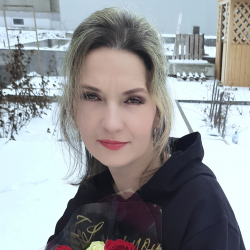

СДЕЛАЙТЕ СВОИ УРОКИ ЕЩЁ ЭФФЕКТИВНЕЕ, А ЖИЗНЬ СВОБОДНЕЕ
Благодаря готовым учебным материалам для работы в классе и дистанционно
Скидки до 50 % на комплекты
только до
Готовые ключевые этапы урока всегда будут у вас под рукой
Организационный момент
Проверка знаний
Объяснение материала
Закрепление изученного
Итоги урока

Maslenitsa
Maslenitsa: Russia’s Joyous Farewell to Winter Maslenitsa, often called "Pancake Week", is one of Russia’s most vibrant and beloved festivals. Celebrated in the last week before Orthodox Lent, this ancient Slavic holiday blends pagan traditions, Christian customs, and sheer revelry to bid farewell to winter and welcome spring.
Why Pancakes? The star of Maslenitsa is the blini (thin, round pancakes). Symbolizing the sun, these golden treats are eaten in abundance, often slathered with butter, honey, jam, or caviar. Historically, blini were also a way to use up rich foods like dairy and eggs before the fasting period of Lent.
A Week of Rituals Each day of Maslenitsa has its own theme and activities: - Monday: *Meeting* – Families build snow forts and light bonfires. - Wednesday: *Gourmand* – Sons-in-law visit their mothers-in-law for blini feasts. - Friday: *Mother-in-Law’s Evening* – The favor is returned with more pancakes! - Sunday: *Forgiveness Day* – People ask forgiveness from loved ones, then gather to burn a straw effigy of *Lady Maslenitsa*, symbolizing the end of winter’s gloom.
Fire, Fun, and Folklore The burning of the effigy is a dramatic climax. As flames consume the scarecrow, crowds cheer, believing the ritual brings fertility and a good harvest. Traditional games like sledding, snowball fights, and fistfights (a playful, non-violent contest) add to the festive chaos.
A Mix of Pagan and Christian Roots Maslenitsa’s origins trace back to pagan sun-worship, celebrating the return of light. When Christianity arrived, the Church adapted the festival into a pre-Lent celebration. Today, it’s a unique fusion: a time for spiritual reflection *and* earthly indulgence.
Maslenitsa Today In modern Russia, cities host fairs with folk music, dancing, and stalls piled high with blini. It’s a time for families to reconnect, neighbors to share meals, and everyone to embrace the joy of renewal. Whether you’re savoring a blin, leaping over a bonfire, or simply soaking in the merriment, Maslenitsa reminds us that even the coldest winters end—and spring is always worth celebrating. 


*Did you know?* Similar festivals exist worldwide, like Mardi Gras (New Orleans) and Carnival (Brazil), but Maslenitsa’s snowy charm is uniquely Russian!






